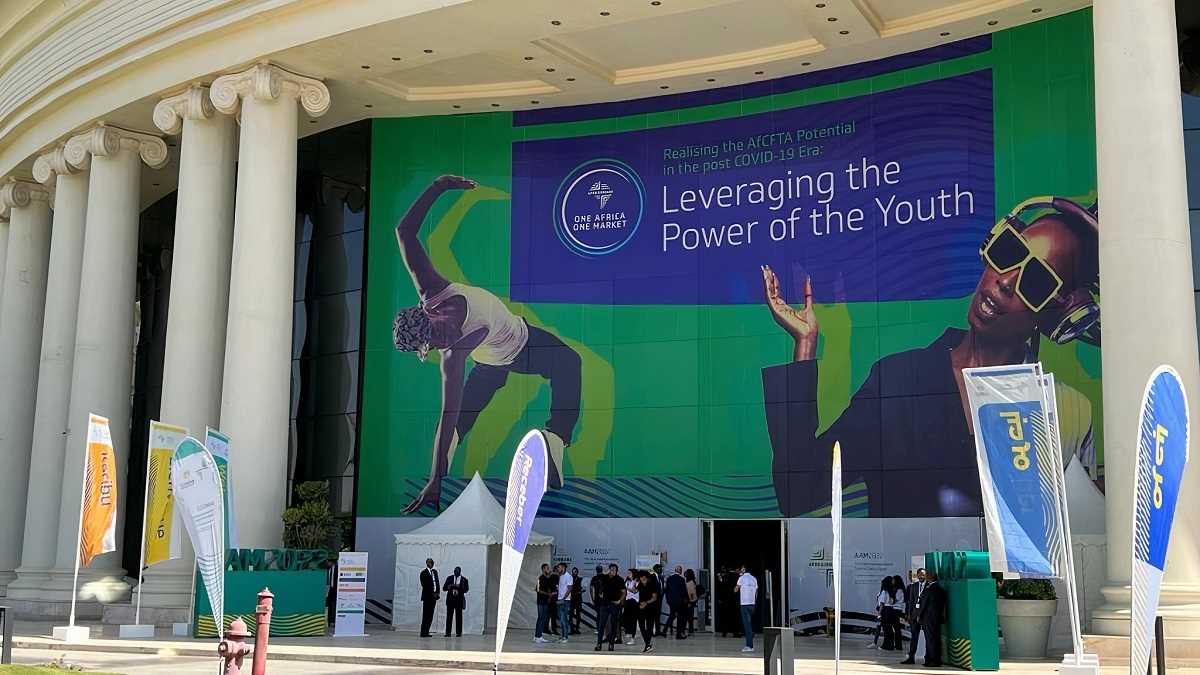Having implemented the AfCFTA in 2021, Africa is well equipped to become a continental trade hub, but only if the youth and digital technology resources the continent holds are utilized
JOHANNESBURG, South Africa, June 15, 2022/APO Group/ —
Africa represents one of the highest potential markets for growth with significant natural and human capital resources untapped. Diverse and rich with opportunities, the continent is home to a number of growing markets spanning natural and mineral resources, construction, infrastructure, forestry, agriculture, tourism and cultural sectors. However, it is the continent’s human capital and digital technology potential that offers the solution to unlocking a new era of intra-African trade and growth.
Following the formation of the Organization of African Unity in 1963 – now the African Union – established with a vision for an Africa that was united, free and in control of its own destiny – countries across the continent have been progressively improving intra-African trade and commerce, recognizing the role cross-border business and continental cooperation will play in driving sustainable socioeconomic growth in Africa. To further incentivize trade, the African Continental Free Trade Agreement (AfCFTA) was implemented in January 2021, the premise of which was to form the world’s largest free trade area by connecting the over 1.3 billion people across 54 African countries. The AfCFTA marked a historic moment for the continent, signaling a new era of simplified trade in Africa.
However, despite its implementation, an article by the Economist of London stated that adoption and leveraging of the AfCFTA has been slow, and “in practice, no trade has happened under its terms because of continued political wrangling. “Africa’s leaders risk squandering the promise of freer trade.” Prof. Benedict Okechukwu Oramah, President and Chairman of Afreximbank, during his opening remarks at the 29th Annual Meetings of Afreximbank, contended that, “While the Economist was right with regards to the facts set out in their article, the conclusions are wrong because the facts in the article are symptoms of a major problem the article did not explore. We cannot reverse the symptoms without confronting the problem.”
A vibrant single market will open a new vista of opportunities that will broaden the choices available to the youth and empower them to reach their potential
According to Prof. Oramah, it is necessary to explore the roots of the problem rather than simply criticize modern state of affairs, while driving the adoption and capitalization of growth-oriented agreements such as the AfCFTA. Specifically, in order to accelerate intra-African trade and commerce, the continent should turn towards its own resources, driving investment and development by leveraging Africa’s human capital and technological potential.
“While the problem was identified decades ago, it is only now that Africa can boast of possessing a combination of factors that can resolve it. These consist of visionary and committed leadership, the youth, and digital technology. Our leadership has done the courageous work of giving us the AfCFTA. A lot now hinges on our Youth. It is for this reason that Afreximbank dedicated this year’s Annual Meeting to the theme, “Realizing the AfCFTA Potential in the Post-COVID-19 Era: Leveraging the Power of The Youth,” Prof. Oramah continued.
Prof. Oramah made a strong case for the role of the youth in Africa’s developmental future, emphasizing that industrial revolutions seen in other countries were largely attributed to a young and capable workforce – a young and capable workforce is representative of Africa’s workforce today. According to Prof. Oramah, “It is our view that the youth will be the catalytic force to the realization of the continental agenda. This asset in our hands is perhaps the greatest resource, an asset much more valuable than all the oil and mineral resources. The African youth are beginning to make significant contributions to economic transformation across the continent.”
“Sprouting everywhere in a fragmented continent, the African youth are poised to make giant strides in a single continental market and could seamlessly become the drivers of Africa’s integration and intra-African trade. Policies that give them intellectual property protection, ease the cost of doing business as well as improve access to the single African market will unleash their entrepreneurial drive. A vibrant single market will open a new vista of opportunities that will broaden the choices available to the youth and empower them to reach their potential,” concluded Prof. Oramah.
As Africa’s diverse markets witness heightened investment and development in a post-COVID-19 context, trade will be critical for ensuring continental, rather than isolated, socioeconomic development. The youth’s role in this development is clear and by investing in the continent’s human capital development, Africa will be able to reap the rewards of a strong and growth-focused economy.
“The African Energy Chamber (AEC) is not only an advocate for the development of the continent’s natural resources but of its human capital resources. Africa’s population represents the youngest, the fastest growing and the arguably the most determined. It is time for us to position the youth at the forefront of the continent’s development, and only then will we be able to witness unprecedented growth. During the continent’s premier energy event, African Energy Week 2022, discussions will center around the youth, the role of women in Africa’s energy future and strategies for enhancing intra-African trade and business,” states NJ Ayuk, Executive Chairman of the AEC.
Distributed by APO Group on behalf of African Energy Chamber.
